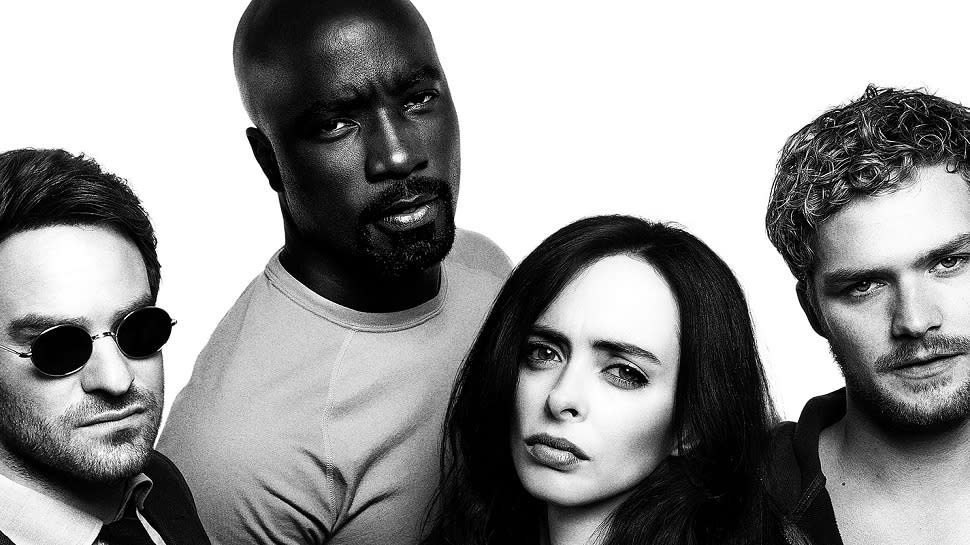The Defenders is less a story, and more a drawn out contractual obligation


Back in 2013, Marvel and Netflix made a deal which would see the development of five television programmes. Daredevil, AKA Jessica Jones, Iron Fist, Luke Cage, and a team-up miniseries to unite them all called The Defenders. The specifics of the deal changed as time went by; Jessica Jones lost the ‘AKA’ from its title, Luke Cage was brought forward, and Daredevil saw an early second season renewal.
But, for the past four years, it was always planned that we’d see The Defenders, in some shape or form. That was always the ruling edict. Iron Fist was rushed, towards the end of production, because there was a need to have it finished in time for The Defenders to start. Jessica Jones, as popular as Daredevil, was given the same second season renewal – but with shooting for The Defenders contractually obliged to happen by a certain point, that return was delayed.
Something of a theme is beginning to emerge, and it’s one that – perhaps – starts to explain just what went wrong with The Defenders.
The Defenders moves at an almost glacial pace, little more than an exercise in procrastination and spinning its wheels. Repetitive exposition leads the way from one poorly choreographed fight scene to the next; in a way, it’s almost an achievement that the series managed to take eight hours to not really do much of anything. Indeed, it’s difficult to highlight emotional arcs or isolate any particular character beats; you could pick out anything in particular really, but one that stands out was the fact that, despite the nearly four-hundred-minute run time, The Defenders didn’t find the time to have a conversation between Matt and Claire Temple. It is, when you think about it, a striking omission.
There does seem to be something of a checklist at work. Every so often cut back to the supporting characters, shoehorning them in, because they signed something that says they have to be there. Another hour to fill? Put Iron Fist in a chair and leave him there for a while. Contrive a reason for the heroes to fight each other. So on, and so forth.
Thus an impression begins to form of The Defenders as less a story, and more a drawn out contractual obligation.
That the ending falls so flat is, in a way, symptomatic of this. Daredevil seemingly dies; a grand sacrifice that’s supposed to form the emotional climax of the series. Of course, though, it doesn’t ring true in any way; even if you don’t know that the third series of Daredevil was announced over a year ago, you can surely tell that Marvel wouldn’t kill one of their more popular characters in a team up venture. Or, more accurately, that they wouldn’t kill one of their more lucrative corporate assets.
After about twenty minutes of delay – not an unfamiliar thing, by this stage – we reach the real ending of The Defenders, which is a recreation of a comic book cover, and the “revelation”, insofar as it can be considered such, that Daredevil is still alive. Well, yes. What else was it going to be?
It’s not so much that The Defenders is bad, exactly. Bits of it are quite good. The leads are, if nothing else, good at their job and keep the show afloat even as the script drags it down. Equally, though, it has to be said – it takes a special kind of programme to waste Sigourney Weaver. At the end of the day, there’s never really a sense that someone went into this with a story they wanted to tell, or any particular vision they wanted to realise.
The Defenders only exists because it had to, and that shines through on every level.
Related:
The Handmaid’s Tale is most effective in its intimacy
Like this article? Hate this article? Why not follow me on twitter for more, or send me a message on facebook to tell me what you thought? You can also find more of my articles for Yahoo here, or check out my blog here.


 Yahoo News
Yahoo News 


